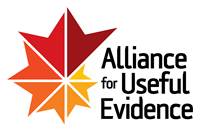The Development of Social Impact Measurement: A Comparison between the UK and USA
The Development of Social Impact Measurement: A Comparison between the UK and USA
By Denise Chau
Creating and implementing a standard social impact measurement framework is something that many socially-minded organisations and enterprises are pursuing right now in the UK. Creating such a standardised framework is important as it provides an objective view of the social impact created, and provides an easier way for funders to evaluate where the funding pool goes. However, consensus on the exact framework has not been reached yet, which leads one to ask – have there been any successful examples of such a universal framework being created elsewhere?
One does not need to look any further than westward across the Atlantic Ocean to find the answer to that question.
Social Impact Measurement in the US
The US has been at the forefront of social impact assessment. Impact assessment initially evolved out of the American government setting the need for environmental assessment into policy in the late 1960s with the passing of the National Environmental Policy Act (NEPA). Many federal organisations that had to incorporate environmental assessment into their workings soon came to recognise that social impact was linked to environment impact. By 1978, the US Council on Environmental Quality had established guidelines for social impact assessment in the context of the evaluations [1].
However, it was not until 1994 that a government unit formally created a standardised approach to social impact measurement. This came in the form of a report by the Interorganizational Committee on Guidelines and Principles for Social Impact Assessment – a joint committee from the U.S. Department of Commerce, the National Oceanic and Atmospheric Administration, and the National Marine Fisheries Service - that gave an in-depth methodology and approach to social impact measurement [2]. This approach gave a rigourous outline of experimental design that ensured the social impact assessment conducted would be a thorough and meticulous affair; these guidelines are still being used today to conduct impact measurement.
Social Impact Measurement in the UK
In contrast, the development of a standardised impact assessment framework is still ongoing in the UK. Fifteen of the UK’s largest social investment organisations are currently working towards creating such a common framework [3]. This standardised framework is needed more than ever now, with the Public Services (Social Value) Act just having come into force this month. This Act now requires public bodies to consider how the areas they work in can be improved economically, socially, and environmentally [4].
Big Society Capital has played an active role in the social impact space to promote the standardisation and uptake of impact assessment. It is part of a large consortium of organisations working towards creating the standardised framework, and recently helped launch Inspiring Impact to increase the pace of impact measurement adoption across the sector [5]. By utilising this two-pronged approach in making impact measurement more easily accessible, and also more commonplace, there is huge potential for social impact measurement to be incorporated into any organisation, large or small, and in turn make more institutions and the general public more knowledgeable about how social impact ties into any aspect of their lives.
The UK and the USA are both developed economies that see the value of a standardised approach to social impact measurement. However, social impact measurement was standardised and institutionalised much earlier in the USA than in the UK. This has consequently created different growth and regulatory environments for social enterprises between the two nations. The next question is – as a social enterprise, is it more advantageous to work in an environment with established social impact assessment guidelines, or an environment where such standards are still evolving?
Denise Chau is an Analyst at EPG Economic and Strategy Consulting. You can find out more at http://www.economicpolicygroup.com/. You can get in touch with her or the rest of the team via [email protected].
[1] McKinsey & Company Social Sector Office (2013). The History of Social Impact Assessment.
[2] National Oceanic and Atmospheric Administration (1994). Guidelines and Principles for Social Impact Assessment.
[3] Building Better Business UK (2012). Social investors development universal impact reporting framework.
[4] The National Archives (2012). Public Services (Social Value) Act 2012.
[5]Cabinet Office (2013). Growing the social investment market.







+44 (0) 20 3111 0735
[email protected]
Follow us on Twitter
Join us on LinkedIn
Join us on Facebook
Our photos on Flickr
Subscribe to our Feed